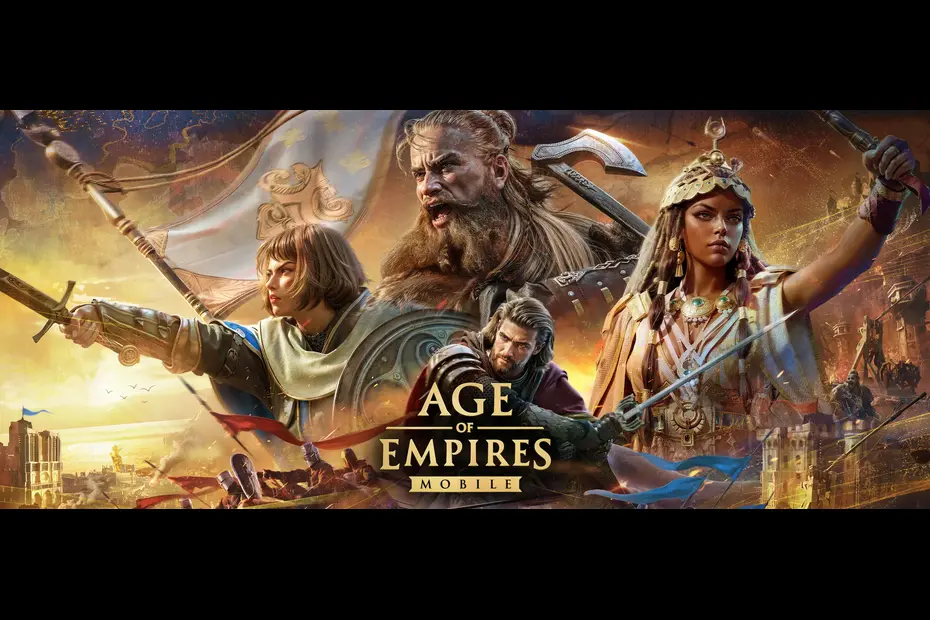The Decline of the Real-Time Strategy Genre
By 2024, the Real-Time Strategy (RTS) genre, which was once a dominant force in the game industry, had declined significantly. This genre, noted for its strategic depth and intricate gameplay, has encountered several hurdles throughout the years. Here’s a look at the growth, peak, and subsequent collapse of RTS games, as well as the circumstances that have led to their current situation.
The Golden Age of RTS Games
The RTS genre gained popularity in the early 1990s with titles like “Dune II” by Westwood Studios, which pioneered many of the genre’s key principles. The mid-1990s to early 2000s were regarded as the golden age of real-time strategy games. This era saw the debut of renowned titles such as “Warcraft,” “StarCraft,” and “Age of Empires.”
Warcraft and StarCraft: Blizzard Entertainment’s “Warcraft: Orcs & Humans” (1994) and “Warcraft II: Tides of Darkness” (1995) redefined the genre with captivating tales and multiplayer options. However, it was “StarCraft” (1998) that became a cultural sensation, particularly in South Korea, where it sparked a thriving esports scene.
Age of Empires: Ensemble Studios’ “Age of Empires II” (1999) was another breakthrough time, featuring historical campaigns and complex strategic gameplay. These games not only sold millions of copies, but also paved the way for a thriving competitive community.
The Decline
Despite the early success, the mid-2000s marked the beginning of the decline for the RTS genre. Several factors contributed to this downturn:
Complexity and Accessibility: RTS games are notoriously difficult to learn. The complicated mechanics and the requirement for quick decision-making might be intimidating for inexperienced players. As gaming became more popular, casual gamers attracted toward genres that were simple to pick up and play.
Shift to Other Genres: As other gaming genres, such as first-person shooters (FPS) and massively multiplayer online games (MMOs), gained popularity, RTS games began to fade. Titles such as “Call of Duty” and “World of Warcraft” gained massive player bases due to their accessible gameplay and social elements.
Economic Factors: Creating an RTS game demands substantial resources, and the return on investment has become increasingly questionable. Many creators changed their focus to genres with established commercial success, such as mobile and live-service games, which provide ongoing revenue streams via microtransactions.
Innovation Stagnation: While other genres continued to innovate and evolve, RTS games struggled to keep pace. Many contemporary RTS titles failed to introduce new ideas, resulting in player fatigue and decreasing interest.
Modern Challenges
Despite a few notable releases in the 2010s, the genre was unable to regain its former fame. Blizzard’s “StarCraft II” (2010) received excellent praise and had a strong esports presence, but it failed to reach a wider audience beyond its specialty.
Games such as “Total War: Three Kingdoms” (2019) and “Age of Empires IV” (2021) received excellent feedback and saw some success. However, they primarily appealed to existing followers rather than attracting new players. The RTS genre was also up against severe competition from more dynamic and fast-paced genres such as MOBAs (“League of Legends”) and battle royales (“Fortnite”).
The Future of RTS Games
Looking ahead, the future of RTS games is unsure. While the genre may never recover widespread popularity, there is still room for innovation and resurrection. Indie developers have expressed an interest in exploring new ideas inside the RTS framework. Games that combine RTS features with other genres, such as survival or city-building, may reach a larger audience.
Furthermore, RTS game fans continue to support the genre by creating mods, unique maps, and competitive play. The key to revitalizing the RTS genre is innovation and making the games more accessible while maintaining their strategic depth.
Conclusion
The downfall of the RTS genre is caused by a variety of issues, including increased complexity, the advent of new genres, economic challenges, and a lack of creativity. While conventional RTS games may no longer be at the forefront of the gaming industry, the genre still has the ability to adapt and attract new audiences. The future may see a combination of RTS features and various gaming experiences, keeping the essence of strategic gameplay alive.
I hope this blog post is helpful and informative! Please let me know if you have any other questions regarding this blog. This blog was made with proper research and with the help of ChatGPT.
Thankyou for reading, do visit our other contents too and signup for more amazing contents coming for you, yes you for you only. Knowaboutgames.com
